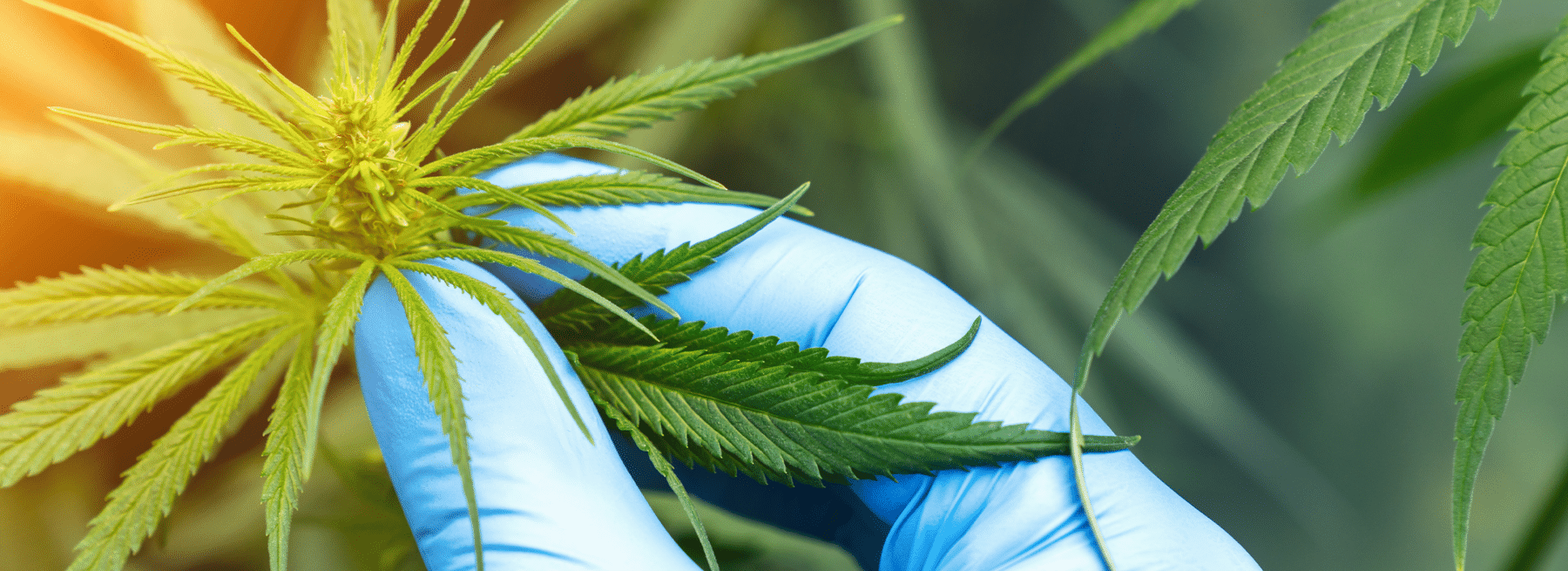Pew Research has found Americans overwhelmingly support the legalization of the cannabis industry for recreational and medicinal use. Despite this and more states legalizing cannabis, there’s still a long way to go. It’ll take time to see progress to the point that marijuana becomes legal at the federal level.
Regardless, commercial security providers have seen their business grow thanks to the cannabis industry and its strict regulations that call for commercial-grade security. Considering marijuana isn’t legal at the federal level, the cannabis industry will continue to be a cash-heavy business for the foreseeable future. Moreover, cannabis is in high demand and that puts it at risk for armed robbery, burglary, and internal theft.
On one hand, legalization helps curb black market activities. On the other hand, some states haven’t legalized marijuana use. Because of this, cannabis dispensaries and other businesses remain at a very high risk of being a victim of crime. Thieves often steal marijuana to transport it across state lines and sell it in areas where it remains illegal. This is why marijuana business security is vital.
Despite legislation moving slowly, the cannabis industry deals with constantly evolving regulations. When a cannabis business fails in compliance, it’s most likely due to not following security regulations as Top 5 Medical Marijuana Dispensary Infractions reports.
To help you avoid failing compliance, review these three reasons cannabis dispensary security is critical and why all cannabis industry businesses and stakeholders need professional commercial-grade security support and expertise.
1. Cannabis Industry Is Cash-Heavy
Cannabis businesses can’t open an account with federal banks. That’s because marijuana is illegal on the federal level. Therefore, it would be illegal for federal banks to work with any business in the cannabis industry. As a result, marijuana businesses tend to have a lot of cash on hand. Criminals know this. That’s why these businesses are at high risk for crime.
Additionally, they have stringent compliance requirements they must follow. These regulations contain detailed requirements for security. Legislature incorporated these requirements knowing the cannabis industry has cash-heavy operations. Every location has its own regulations. The ones to follow depend on the location of the business.
In Canada, rules affecting cannabis dispensaries vary by province. In the U.S., laws fluctuate by municipality and state. For example, the municipalities of California contain different requirements for security cameras. Businesses in Long Beach must retrain video recordings for at least 30 days. Yet, El Monte dispensaries must keep video footage for 45 days. They also need to provide the Chief of Police or a designee with remote access to the recordings.
There are even laws that require securing parts of the business outside of the property. One such example comes from Colorado where the state requires vehicles delivering products to have video-monitored lockboxes.
The reason the law keeps changing is that lawmakers don’t know what kind of impact the law will have on the cannabis industry until after it goes into effect. They may discover problems or opportunities that compel them to make changes to the law.
Law enforcement, of course, has to stay on top of these evolving laws as well as all other laws not related to the cannabis industry. This tends to shift policing priorities toward protecting citizens and maintaining public safety rather than patrolling near cannabis businesses. Between being cash-heavy and the ever-changing laws, it’s crucial for cannabis industry businesses to take steps to implement professional, commercial-grade security.
2. Cannabis Industry Has a Complicated Licensing Process
All cannabis industry businesses must obtain a license to operate in their location. This involves meeting compliance standards and working through a complicated licensing process. This process varies by country, state, and municipality. The licensing process typically requires these businesses to create a detailed cannabis business security plan.
The licensing application process may involve risk assessments, site visits, the development of a security plan, and security training policies and procedures. To work through this process requires the cannabis industry to find a security partner that knows the industry inside out. You’ll also want to work with a lawyer who is an expert on cannabis industry regulations.
A cannabis business security plan is a living document. Considering the cannabis industry constantly changes, having a well-documented security plan goes a long way in helping you be in compliance and deter crime, both internally and externally. Yes, you have to take steps to prevent employee theft.
An article from MJ Biz Daily reveals employees are the biggest concern for theft as 90% of the loss of products in the cannabis industry is due to internal theft. With the business being cash-heavy, employees may try to pocket money here and there thinking no one will notice the small amounts. It’ll also be hard to prove who stole the money.
A Forbes article mentions that 25 cannabis businesses in Oakland have been burglarized over a two-week period. This resulted in $5 million worth of damage. It’s a harsh and expensive reminder of why it’s essential to train employees on security.
Employees need to sign off on the security plan indicating they understand and will follow the procedures. The more they know about your security, the better. When they learn about the cameras watching the cash registers and products, then they could be less likely to steal.
Another compelling reason to work with a lawyer and experienced security company is that if the business fails the application process, it will have to start over. This leads to expensive delays. Getting the application process right the first time is a must.
3. The Need to Comply with Strict Cannabis Security Requirements
As previously stated, laws require cannabis industry operations to follow meticulous rules in implementing remote video surveillance. Again, the regulations are different based on country, province, state, and municipality.
These requirements list details such as the placement of the security cameras, camera frame rate and resolution, and how long to retain video recordings. The higher the video resolution and the longer you need to retain footage, the more storage space you will need. So, you’ll want to work with an experienced security partner who thinks of these things and knows the industry.
Another critical security camera option you need is a backup plan for power outages and potential problems. Murphy’s Law says that anything that can go wrong will go wrong.
A company knowledgeable about cannabis dispensary security can include a system health check as part of its services. You don’t want to worry about whether your surveillance system is working. These regular system checks are designed to make sure everything is working or identifies a problem that can get fixed right away before anything happens.
How Do You Find a Security Partner Who Knows the Cannabis Industry?
Due to the nature of the cannabis regulations, experts highly recommend working with a security partner with cannabis industry experience to help you select, install, and maintain your video surveillance system. You can have the right technology and yet fail compliance as a number of things can go wrong during the implementation of the video surveillance system.
Any company that fails in compliance will pay a price. Getting the job done right the first time around saves money. Ask professional security companies about an installation guarantee clause. This helps protect you in case something goes wrong or fails to comply with the laws and regulations.
“When it comes to securing your cannabis facility, compliance is key,” writes Steve Birkmeier in Security Info Watch. “Not all security consultants are the same, in fact, many of these professionals lack experience in the cannabis industry which is highly regulated and varies state-by-state. It is strongly recommended to work with a consultant and/or systems integrator who has experience doing design-build work in the cannabis sector in your specific state. These professionals understand the unique requirements, pitfalls and caveats and more importantly, they are more likely to work with security product manufacturers that cater to your needs.”
Birkmeier recommends searching for technology that can manage access control, intrusion detection, video, and video verification. All information must be tagged and include a timestamp for referencing at a later time. A video surveillance system that combines video analytics and trained monitoring operators can catch and report suspicious activity in real-time.
Stealth Monitoring can provide all of these as a part of its service. We work with cannabis businesses across North America including the U.S. and Canada. When you work with our team, you gain security experts with experience in the industry and know how to comply with laws that apply to your cannabis business.
Unlike traditional security, remote video surveillance is a proactive solution as it can help deter crime and prevent damage. When video analytics and trained monitoring operators spot suspicious activity, they can act as needed for the situation. This could be issuing a warning on the audio speaker. If the suspects don’t leave, then the next step can be a call to law enforcement.
As you start interviewing qualified security firms, start by asking for cannabis case studies and client referrals. Also, check out this free cannabis security guide that covers cannabis industry security in the U.S. and Canada. After reading the paper, you’ll understand the keys to a comprehensive security system and how it can help your business. Ready to learn more? Contact us.

